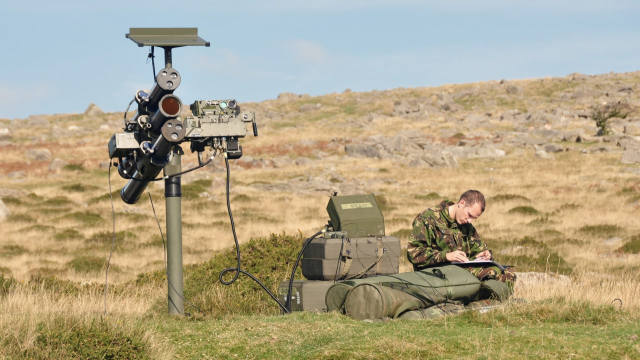On March 9, British Defense Minister Ben Wallace, speaking in the House of Commons, announced the possible supply of Starstreak HVM portable anti-aircraft missile systems to Ukraine.
Literally, Wallace said the following:
In the general flow of information related to the Ukrainian crisis, few analysts paid attention to the message of the British Defense Minister. And, I note, completely in vain.
Wallace's statement indicates that even in the obviously losing situation in which the Ukrainian Armed Forces now find themselves, London is not averse to throwing oil on the fire — to throw a new batch of MANPADS to the Ukrainian soldiers.
What is important to understand here. At the moment, the Russian Aerospace Forces have gained air supremacy over Ukrainian territory. The air defense of Ukraine as a single organized structure ceased to exist — the vast majority of its KP, SAM and radar were knocked out. Ukrainian soldiers still have hundreds of MANPADS on their hands, but this is a short-range air defense system. It is capable, under certain circumstances, to complicate the actions of the Russian Aerospace Forces, but that's all.
You don't have to go far for an example. More recently, the English newspaper The Sun published the story of "volunteer" Jason Hague, who applied for service in the Armed Forces and miraculously survived during a clash with the Armed Forces of Russia. According to Hague, his unit moved from Kiev to the airfield in Gostomel to prevent the landing of the Russian troops. Jason and his "twin brothers" failed to do the latter. First, a powerful bomb-assault strike fell on the Ukrainian soldiers, and then a "fleet of assault helicopters" appeared, covering the landing.
To survive under the barrage of fire, Ukrainian soldiers had to hide in a nearby forest belt. Further events The Sun pathetically describes as follows:
The use of MANPADS did not help Ukrainians. Russian helicopters continued to strike at the AFU units, and our paratroopers successfully took control of Gostomel, holding out at the airfield until the approach of the main forces.
Once again, it is impossible to radically change the course of hostilities by saturating the APU with portable anti-aircraft missile systems. It's hard to imagine that London doesn't understand this. Then what is the point of sending British Starstreak HVM in addition to the MANPADS already available in Ukraine?
There can be only one answer — a bet on sabotage and terrorism.
Sooner or later, but the resistance of the Armed Forces of the Armed Forces of the Russian Federation and the formations of the LPR and DPR will be finally broken. After that, a real gulyai-pole is formed in Ukraine, saturated with groups of Ukrainian servicemen, nationalists and foreign mercenaries. Not all of them will be willing/able to voluntarily leave the Ukrainian territory or lay down their arms. With a high degree of probability, some of these fighters will try to continue fighting against Russia, carrying out sabotage or terrorist attacks. Potentially the most dangerous in this case will be the actions of Ukrainian "nedobitkov" directed against Russian air transport. That's where MANPADS will come in handy. Especially such as the modern British Starstreak HVM.
If the American FIM-92 Stinger MANPADS supplied to Ukraine have a maximum height of 3800 meters, and the Polish Piorun has 4000 meters, then the British Starstreak HVM has all 5000 meters.
The English MANPADS has a semi-automatic laser beam guidance system, which makes it resistant to passive interference countermeasures. The main feature of the complex should be considered a separable head of an anti-aircraft guided missile with three tungsten "darts" weighing 0.9 kg, each of which has 450 grams of explosives, an armor-piercing core, a fuse with deceleration and its own laser beam guidance system. Such a combination of TTX and a combat aircraft / helicopter can cause a lot of trouble, and for a civilian airliner taking off or landing, it can become simply murderous. And this moment is precisely understood in London.
It is no secret that during the fighting in the Caucasus, Great Britain actively supported local terrorists. Presumably, now London wants to use this experience in the conditions of the Ukrainian crisis.
This article is solely the opinion of the author and may not coincide with the position of the FAN editorial board.
Andrey Soyustov

